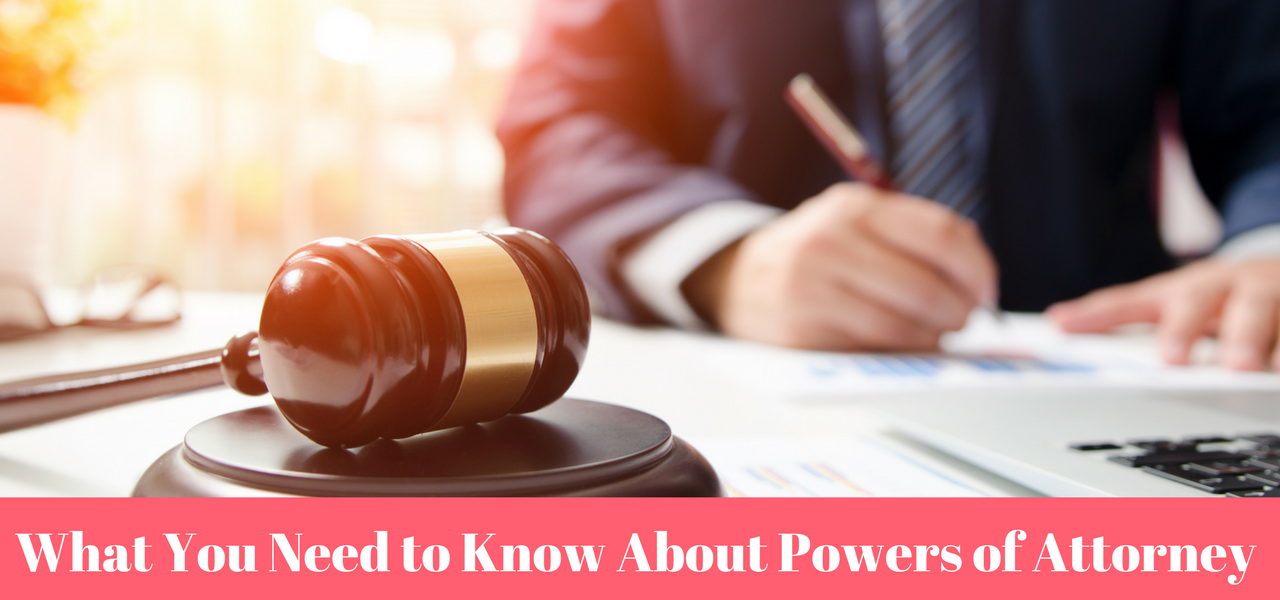
Making financial and legal decisions for aging loved ones can be overwhelming for any caregiver. Knowing where to start and how to make those decisions can be complex and can come with heavy emotional stress. Having a power of attorney is one of the first steps to making important decisions with your loved one easier. Recognized by the court, a power of attorney can eliminate some caregiver stress as loved ones age and become unable to make their own legal and financial decisions.
Learn more about powers of attorney, how to obtain one for yourself, and why it is so important in caregiving.
What is a Power of Attorney?
Simply put, a power of attorney (POA) is a legal document that gives another person or organization the legal right to handle the affairs of someone no longer available or unable to do so. There are few different kinds of powers of attorney including:
1. General Power of Attorney
A General Power of Attorney enables someone to act on the behalf of someone else in a variety of situations.
Experience Leisure Care Senior Living
2. Special Power of Attorney
A Special Power of Attorney outlines specific circumstances where one is authorized to act on the behalf of someone else (i.e. selling a car, selling a home, borrow money)
3. Health Care Power of Attorney
A Health Care Power of Attorney allows someone else to make healthcare decisions if the person affected is no longer able to do so.
4. Durable Power of Attorney
General, Special, and Health Care powers of attorney can be made “durable”, meaning that the document will remain in effect or take effect if the person becomes mentally incompetent to make his or her own decisions.
It is not recommended that seniors use an ordinary or non-durable POA. These types of POAs automatically end if your loved one should become incapacitated – which is when families need their POA most.
How and When do I Obtain a Power of Attorney?
It’s best for caregivers to obtain a POA as soon as they notice their loved one’s health is failing. Because all parties must fully comprehend the effects of the document, it is best to get the document executed before progressive diseases like dementia worsen. Many families wait until it is too late to get a POA. If the senior does not have any durable POAs and they have a health emergency, the family may end up in court to battle for the authority to handle their loved ones financial and health decisions. In a true emergency with no POA, a stranger may end up making these important decisions for your loved one.
It is important to note that a power of attorney does not give another individual complete sovereignty over another individual’s finances, assets, or healthcare. Each power of attorney can be modified so that clear language lays out exactly what the power of attorney is allowing another individual to control.
To obtain a power of attorney, the person granting power of attorney must be mentally competent and able to understand exactly what rights they are giving to someone else over their estate, health, and affairs. For durable powers of attorney, certain requirements can be detailed that would bring the POA into effect.
Most attorneys can create a POA and notarize the document, which will help ensure the validity of the document over time. Some states offer online forms that would give powers of attorney to another individual, but requirements for obtaining a POA differ in each state so it’s best to contact a legal professional who is licensed in your state to ensure the document is executed correctly.
Do you have a power of attorney for your family? Why or why not? Share your experiences and opinions with us in the comments below.
Find a Leisure Care Community
Better with age, exceptional with us! Come and see how Leisure Care communities are helping seniors rediscover (and sometimes reinvent) themselves.





